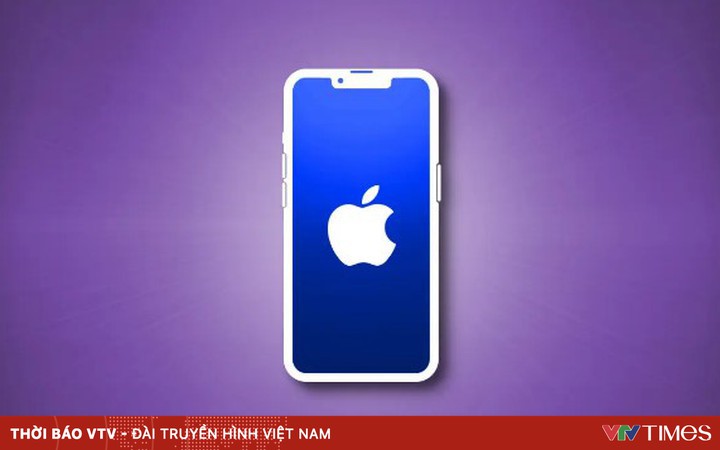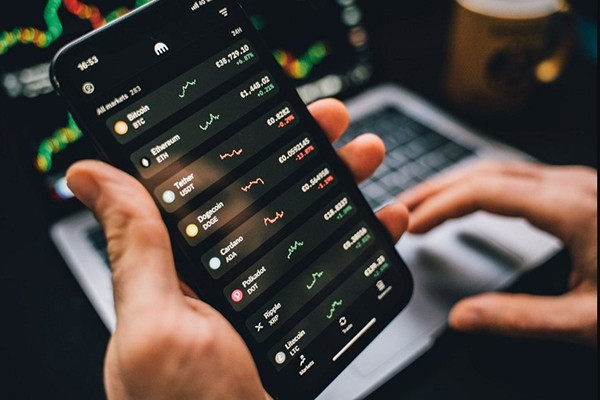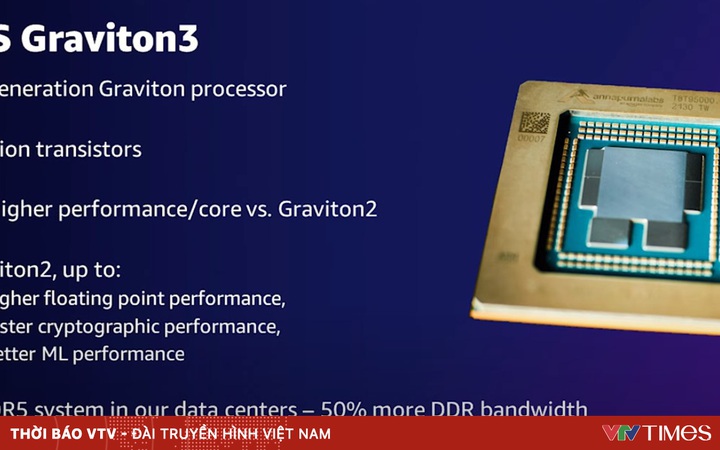James, a data analyst in the US, is always busy with work, so he never thought he would be reprimanded for being distracted during work hours.
James was given a laptop to work remotely during the pandemic. During a meeting at the end of 2021, his team was completely surprised to be informed that there was a gap in working hours, because no one entered the information into the company’s database. James and his colleagues expressed anger when they learned that they were being monitored from a distance.
Can a company use a computer tool, collectively known as bossware, to track employee progress or prevent them from leaving? Many companies in the US and the West want to try this, especially in the context of workers often working remotely during Covid-19.

Many businesses in the US and the West are looking for ways to monitor employees. Image: Guardian
“It’s going to happen to nearly every type of job,” said Wilneida Negron, director of research and policy at Coworker, a nonprofit organization that supports workers in the US.
Survey of over 1,250 businesses in the US by the website Digital.com conducted last September found that 60% of companies with remote workers used tracking software, mainly to monitor web surfing and desktop app usage. Nearly 90% confirmed to have fired employees after operating this software.
Tracking technologies can record keystrokes typed, take screenshots, record mouse movements, activate webcams and microphones, and take photos without employees knowing. Massive enterprise AI and sophisticated algorithms are also built to analyze these data.
Many tools are developed to ensure employees don’t inadvertently leak customer or business secrets, as well as to detect the risk that they are about to quit or sell secrets to competitors. Among them, work performance evaluation software dominates. By the end of 2020, Microsoft is rolling out Productivity Score with the ability to measure employee activity across its range of applications, including participation in online meetings and emailing. Microsoft received a lot of criticism for this software and had to apologize and make adjustments to hide the identity of the reviewers.
Even so, many small companies still find ways to overcome such limitations.
Prodoscore, founded in 2016, is one of them. The company’s software is being used to monitor 5,000 employees in multiple companies. Each person is scored daily on a 100-point scale, then the results are sent to the leader and themselves. Scores are calculated by a separate algorithm that evaluates employee interactions with business applications.
Only half of Prodoscore’s customers notify employees that they are under surveillance. CEO Sam Naficy affirms that the software is friendly to employees, because it helps them perform effectively when working from home, as well as without the biases that often appear on people management.
Prodoscore discourages enterprises from making reward and punishment decisions based on software scores, emphasizing that this is only a metric to support actual work output.

Interface a software to evaluate work efficiency. Image: Veriato
But what do the employees think when they know they are being watched like that?
James and his colleagues realized business owners were tracking their keyboard input into a database. When the information was revealed, he researched and discovered that some of the empty time was actually when they could rest and eat.
Being surreptitiously watched makes them uneasy, but James thinks the bigger problem is that management doesn’t understand that data entry is just part of the job and doesn’t reflect real performance. Contacting new sales and shipping companies takes up most of the time.
“The key is the lack of human management. It can be described as something like ‘your numbers don’t match what we want, despite the fact you’ve proven to be highly effective.’ They said. look at us as if we were robots,” James said.
Many experts say this is a big problem, as the tracking technology has yet to be tested in practice on a large scale. Performance scores can give an objective and unbiased impression, as they are based on machine performance and are not influenced by human emotions. However, this is not entirely correct.
“Many software uses activity frequency to evaluate performance, but constant phone calls or multiple emails are not synonymous with good work. How these systems score is also not clear to managers. “, commented Lisa Kresge, a researcher at the Center for Labor at the University of California at Berkeley in the US.
Merve Hickok, director of research at the Center for AI and Digital Policy in the US, said that an employee who spends time mentoring co-workers could be classed as “underperforming” because there is little data available. from their computer. Grading work can also force workers to find ways to fool the system, instead of focusing on their tasks.
AI models, which are trained on available data, can also make misjudgments and impose biases.
In addition, there is a privacy issue, when the tool that automatically activates the webcam and microphone can collect data that is unrelated and out of the reach of the business. The constant supervision also causes psychological burden for employees, increases stress and affects the quality of work.
Controversy over enterprise tracking software is not over yet. With James, he said he was looking for a new job that didn’t come with the “malicious” tracking problem at his old company.
Diep Anh (according to Guardian)
at Blogtuan.info – Source: vnexpress.net – Read the original article here



